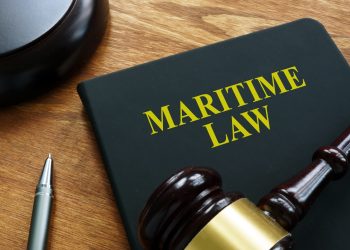Nine Baltic marine areas were described as ecologically or biologically significant, on the sidelines of the Regional Workshop to Facilitate the Description of Ecologically or Biologically Significant Marine Areas (EBSAs) in the Baltic Sea, in late February, in Helsinki.
These include five transboundary areas, covering waters of two or more countries, and extend into 14 of the 17 Baltic Sea sub-basins. Altogether, they cover 23% of the Baltic Sea, slightly higher than the 19% the average in other areas of the world.
The described EBSAs are:
- Northern Bothnian Bay
- Kvarken Archipelago
- Åland Sea, Åland Islands and the Archipelago Sea of Finland
- Eastern Gulf of Finland
- Inner Sea of West Estonian Archipelago
- Southeastern Baltic Sea Shallows
- Southern Gotland Harbour Porpoise Area
- Fehmarn Belt
- Fladen and Stora and Lilla Middelgrund
The workshop was hosted by the Government of Finland, with financial support by Finland and Sweden. It was convened by the Secretariat of the Convention on Biological Diversity (CBD) in collaboration with HELCOM.
Monika Stankiewicz, HELCOM Executive Secretary, stated:
The workshop outcome is an opportunity to highlight the fact that despite the known marine environmental problems, the unique semi-enclosed Baltic Sea does have a great ecological or biological significance.
The application of the EBSA criteria is a scientific and technical exercise, carried out through a series of regional workshops. The area can be described as EBSA if it meets one or more CBD scientific criteria such uniqueness or rarity, special importance for life history stages of species, importance for threatened, endangered or declining species and/or habitats, and biological productivity and diversity. Management issues, including threats to the areas and needs for protection, are not considered in the process.

The Baltic EBSA workshop was registered by HELCOM as a voluntary commitment at the UN Ocean Conference for implementation of Sustainable Development Goal 14, on 5-9 June 2017, New York. The decision to organize the workshop was made bearing in mind especially the possibilities the EBSA concept offers for Maritime Spatial Planning.
The workshop report will be submitted for consideration to the 22nd meeting of the CBD Subsidiary Body on Scientific, Technical and Technological Advice (SBSTTA), scheduled for 2–7 July 2018, Montreal, Canada, and subsequently to the 14th meeting of the Conference of the Parties to the Convention (COP), scheduled for 10–22 November 2018, in Sharm El-Sheikh, Egypt.
Signed by 150 government leaders at the 1992 Rio Earth Summit, the Convention on Biological Diversity is dedicated to promoting sustainable development. Conceived as a practical tool for translating the principles of the United Nations agenda for sustainable development into reality, the Convention recognizes that biological diversity is about more than plants, animals and micro-organisms and their ecosystems – it is about people and our need for food security, medicines, fresh air and water, shelter, and a clean and healthy environment in which to live. The scientific criteria for describing ecologically or biologically significant marine areas were adopted by the Conference of the Parties to the CBD in 2008.




































































